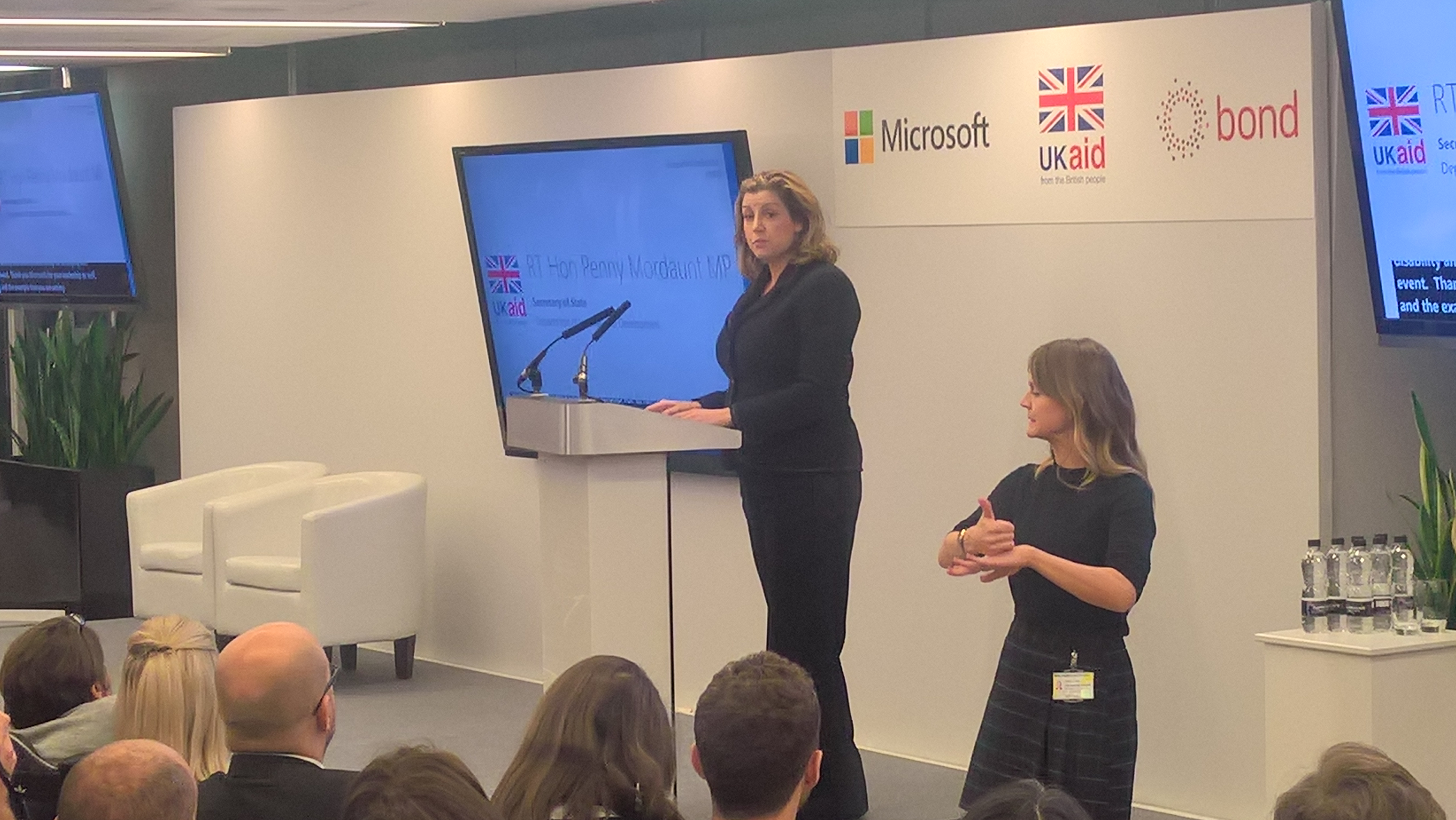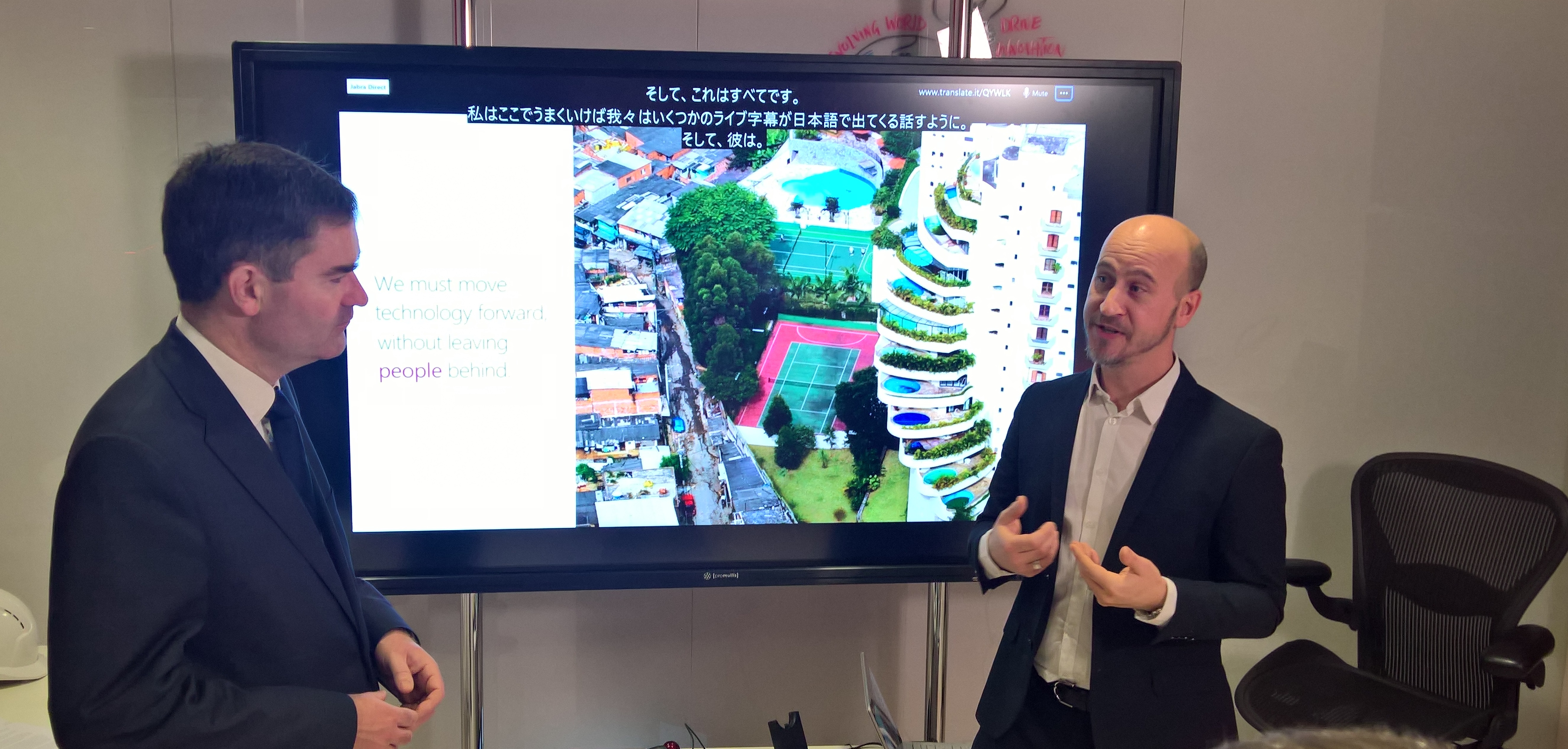
Technology can remove barriers for disabled people, says Microsoft
Microsoft has welcomed Government plans to help more people with disabilities into work.
Theresa May, the Prime Minister, announced an expansion of the “fit note” scheme and training for work coaches to help disabled people and those with physical and mental health conditions find employment and progress in those roles.
The strategy, called Improving Lives: the Future of Work, Health and Disability, builds on last year’s Work, Health and Disability Green Paper, which called for a comprehensive change to the UK’s approach to disability employment. It also coincided with the announcement that the UK will co-host a global disability summit in July 2018.
The news was welcomed by Microsoft, which had recently shown David Gauke, the Secretary of State for Work and Pensions, and Sarah Newton, the Minister of State for Disabled People, Health and Work, the success it has had in assisting people with a range of disabilities.
“We welcome the Government’s plan to get more disabled people and those with health conditions into work,” said Hugh Milward, Senior Director of Corporate, External and Legal Affairs. “Our mission is to empower every person on the planet to achieve more, and that truly means every person.
“Microsoft believes that technology can play a critical role in helping to remove some of the barriers that people with disabilities experience in the workplace and elsewhere. We urge everyone to include, engage and employ people with disabilities. If we ignore the disabled population, we are missing out on a huge number of talented problem solvers who bring a diverse and welcome point of view into any workplace.
“It requires a global effort, but it is one that will lead to better design, better systems and a better world for all.”
The Government’s announcement came just days after Hector Minto, Senior Technology Evangelist at Microsoft, showed Gauke and Newton a range of products the technology company has created to help disabled people.
The first, Seeing AI, helps blind and partially sighted people by using artificial intelligence to recognise objects, friends and text via a phone or tablet’s camera and describing them to the user.
Minto followed that with a demonstration of the automatic translation features embedded in PowerPoint. “People who are deaf or hard of hearing can have live subtitles in any meeting,” he said.
Lastly, he showed off Eye Control, which is being used by thousands of people to control their mouse, type using an on-screen keyboard, and communicate with people using text-to-speech just by moving their eyes. Support for the technology has been embedded in Windows 10 since the recent free Fall Creators Update, but requires an eye tracker camera.
The eye-tracking device Minto used cost just £150 to buy, which surprised Gauke: “I was aware of the technology but the fact that it’s so available at that affordable price…” he said.
“The important thing for people in the workplace with disabilities is that they feel they can go to any computer, not just the computer where their specialist software is installed. What we are trying to do is make it so assistive technology is everywhere,” Minto added.
Gauke said he was pleased to see technology making a difference to people with disabilities in the workplace.
“What we are seeing is employers adopting new technology that can help people deal with things that would otherwise be a problem but are increasingly much less of a problem. That’s really encouraging,” he said. “What we want to do is to continue working with employers to exploit the opportunities of new technology and keep testing and learning to find out what works and what are the things that can make a difference, so that more disabled people can fulfil their potential and get a great job.”
Separately, in an event at Microsoft’s office in London, Penny Mordaunt, Secretary of State for International Development, also placed technology at the core of the Government’s efforts to support people with disabilities.

Penny Mordaunt, Secretary of State for International Development, speaks at an event at Microsoft’s office in London
Unveiling the Global Disability Summit, to be held in the UK next year, she said: “It is vital that we harness the smartest solutions from every sector, from Government and business, through to civil society and academia. As well as getting the basics right for people with disabilities, access to healthcare, livelihoods, a good education and freedom from fear and violence, I know that technology will be at the heart of many solutions that we create.
“Thanks to technology, we have opportunities previous generations did not. We have the power to eradicate poverty, to enable a person to participate fully in society, to overcome barriers, to be connected, to be empowered. Technology reduces our costs, extends our reach and helps us realise our dreams.”
Microsoft’s welcome for the summit was the latest example of how the company works with Government, non-Governmental organisations and technology suppliers to create accessible systems at the design stage.
“If you design for a disability, you end up creating solutions that are easy for all. That also raises the profile of disabled talent in an organisation at the earlier stage,” Milward said. “Many middle and low-income countries are yet to realise the societal benefit of assistive technology. However, lower-cost hardware, more solutions baked into the operating systems, and expertise on the technology being shared via social media is starting to have an impact.”
The Department for International Development said innovation and expertise from companies including Microsoft would be “vital” in learning how to support people with disabilities in the developing world.



